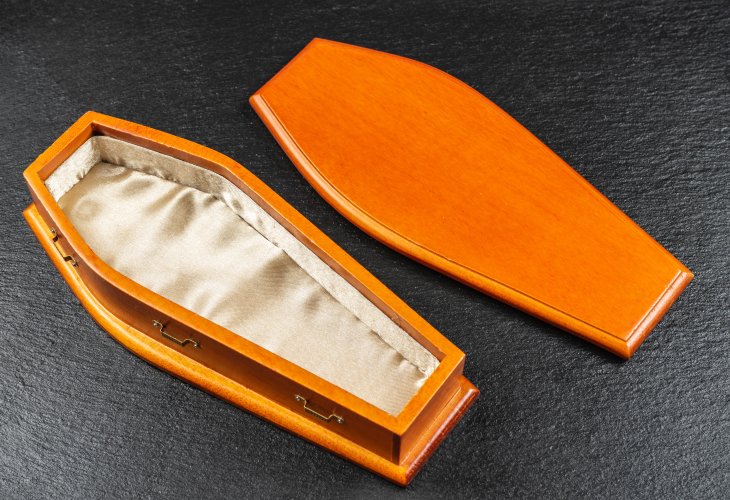The Awakened 'Dead': Why Was a Bell Installed in Coffins?
Around 250 years ago, stories spread across Western Europe of the 'dead' waking up in the middle of funerals. What's the connection to a bell installed inside the coffin?
 (Photo: shutterstock)
(Photo: shutterstock)Around 250 years ago, stories spread across Western Europe of the 'dead' waking up in the middle of funerals. One woman was presumed dead, but as her coffin was carried, faint knocks were heard from inside. The coffin was opened, the woman leaped out and returned to life. In another case, a child opened his eyes and called out to his mother as his body was being lowered into the grave.
The Duke of Mecklenburg decreed that every coffin should have a bell installed inside, so if the deceased awoke, they could alert their family...
Rabbi Yosef of Frankfurt am Main had also imagined such scenarios, writing in 1630: 'To bury the dead is a serious prohibition. Moreover, it's a great disgrace to the deceased according to tradition... Nevertheless, one should not rush to bury immediately after death, lest there still be life in the body, as has happened on some occasions. It is heard that in our time, after a burial, the deceased returned to life, and when due to a flowing river, the grave had to be opened, they found the coffin full of blood stains and the head injured from the distress of the deceased. Recently, a precaution was made here not to take the dead from the house until three hours have passed before the funeral,' (Yosef Ometz).
But the Duke of Mecklenburg was a 'strict' individual, unsatisfied with Jewish precautions. He ordered a three-day wait after anyone's death to ensure they were truly deceased. This order conflicted with Jewish law, which commands prompt burial and prohibits the disrespect of delaying it.
Jewish Germans turned to Moses Mendelssohn, one of the sages of Berlin and a founder of the Haskalah movement, and Mendelssohn contemplated the Duke's suggestion, noting that the main prohibition was in hot countries where decay occurs quickly, but in cold countries like Germany, perhaps there isn't a complete prohibition in delaying burial.
However, the great Rabbi Yaavetz was very angry with Mendelssohn's stance and sent him an enraged letter, urging him not to meddle in halachic matters, and not to consider changing the age-old burial customs of the Jewish people.
Eventually, the decree was canceled, and Jewish burial customs remained unchanged.

